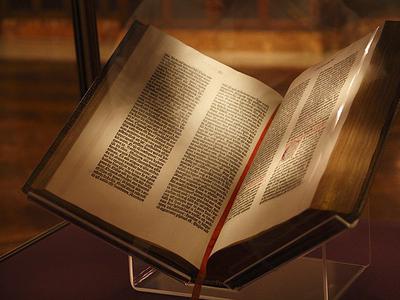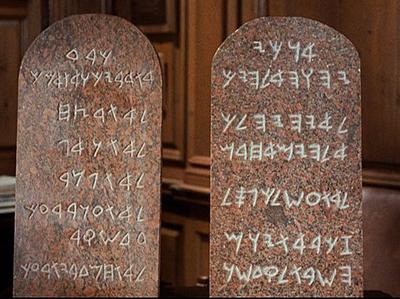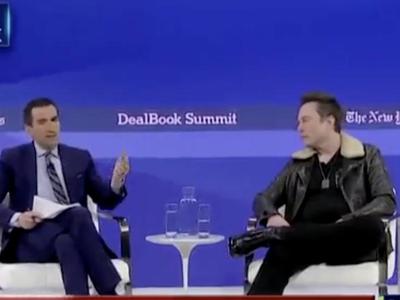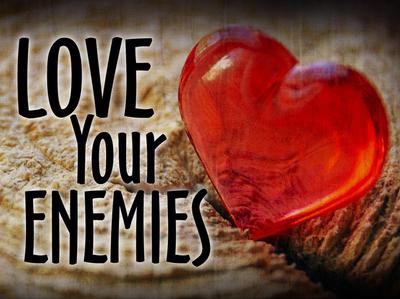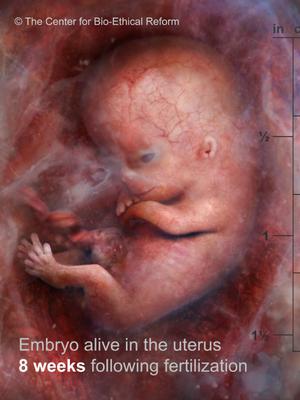
Source: https://www.cbruk.org/humandevelopment
Introduction
Internet and Social Media contain a lot of good information addressing concerns regarding the Covid-19 vaccine. Many myths have been addressed and corrected with facts.[1] This article only focuses on one issue that unfortunately has not been sufficiently talked about by much of the mainstream media[2]: The vaccines currently available were developed and/or tested with human fetal cell lines.[3] It is very probable that they were originally obtained from elective abortions.[4]
Although the vaccines themselves do not contain fetal cells anymore, this issue still has the potential to cause problems for members of worldwide faith communities. For example, Hindus, Buddhists, Jews, Christians and Muslims generally forbid abortion, considering it to be the killing of innocent babies.[5] All these religions together number about 5.3 billion people. That is around 77% of the current world population.[6]
Sadly, Muslims have generally focused more on other issues, such as whether or not the vaccines contain haram (forbidden) ingrediencies, like alcohol or pork.[7] The fact that they were developed in a haram way should arguably be just as important for them.
Abortion was the leading cause of death worldwide in 2019, ending the lives of over 73 million unborn babies.[8] They outnumbered the total Covid-19[9] death rates by far.[10] Therefore, this ethical dilemma needs to be urgently examined.
A word of caution to those readers who are personally affected by this very difficult and emotional topic: The “Centre for Bio-Ethical Reform UK” (CBRUK) offers practical help to those who are distressed: cbruk.org/pregnant
Furthermore, the worldwide minority position that abortion is not a problem will also be addressed. If you hold that position, feel free to skip most of this article and go to the last heading “Why should your belief be right that abortion is wrong?” straight away.
Do not touch this with a barge-pole
That phrase is “said of something or someone so unappealing that one wouldn't want to go anywhere near. Barge-poles are the long wooden poles used to push barges along.”[11] The expression came to the mind of this author later when he woke up with a headache from a dream. It occurred on the morning after he finished the research on the controversial subject at hand. In the dream he saw a long metal pole on top of a car. It was unsecured and in danger of falling off. As this author wanted to take it off the roof to prevent others from getting hurt, the pole fell onto the road. He tried a couple of times to fix it on to the roof of that car but without success. Finally, he decided to carefully put it right beside the kerb of the pavement. Hopefully, someone would see it and call the council to come and take care of the pole.
Upon waking up the head ache soon disappeared and the meaning of the dream became obvious: The metal barge pole stands for the needle used to get the Covid-19 jab into the arm. The ethical problem behind is huge and has to be talked about in spite of the difficulties this may cause for some. In that way you, the individual who reads this treatise and others in societies, to whom you pass it on can properly take care of it. Therefore, here we go . . .
Harming others by taking their belongings without permission is wrong
There is a strong consensus among all humans that those who forcefully take what is not theirs and use it for their benefit are evil. Yet we live in a world where many people, especially in the West, profit today, precisely because of the exploitation of others in the past. Slavery, colonialization, genocide and unjust wars are not just empty words but horrific summaries of often untold suffering.
How are we to live in the present with such a horrible past that cannot be undone?[12] The only right way is to stop and not repeat this injustice. Evil acts of the past must be condemned and a repetition of them must be actively prevented. Everything in our power has to be done to help descendants of victims. Only then are we justified to continue living in the comfortable lifestyle today, brought about by past evil actions.
Otherwise, they become even greater in the present, especially when other lives are endangered. Not to adopt this strategy is shameful, making us unjust and guilty of past evil by consent, even if we did not commit it personally. It also makes us blameworthy by cooperation in that we encourage the evil doer in his actions by our silence. Thereby we are contributing to continued present and future evil actions.
To vaccinate . . . but only in an ethically correct way
Having discussed the moral principles above, here is how to apply them in the case of Covid-19 vaccination:
· The vaccines currently available are associated with human fetal cell lines. Those who believe abortion is generally wrong[13] have to stand up and oppose this evil practice. A refusal to do so is scandalous and makes us guilty by consent and cooperation. Examples of how to protest are:
-encourage development of non-fetal alternative vaccines,[14]
-choose them once they become available,
-oppose abortion[15] and harvesting of fetal organs,[16]
-print and cut out picture found here, pass it on to one who vaccinates,
-campaign creatively[17] on social media with posts like this (right click on picture and "save image as" on your device.
· The risks of not taking the vaccines are far greater than the risks[18] of taking them. Therefore, getting the Covid-19 vaccination after having clearly opposed abortion is justified. It offers increased protection and thereby prevents more suffering of illness and death.
· Those who are still against taking the vaccines should be allowed to refuse them as conscientious objectors. However, since governments have a duty to protect their citizens, they may have to forbid those who are not vaccinated from foreign travel and from entering certain other public places. The same is already happening with certain vaccinations (e.g., against yellow fever) one has to have in order to enter various countries.
Biblical examples
For Christians the Bible is the instruction manual for life. The following passages do confirm the moral principle that, when given a choice[19], the benefits arising from past evil can be appropriated as long as one condemns it and actively works against it now, in order to prevent greater evil:
Pharisees and Herodians: “Tell us then, what is your opinion? Is it right to pay the imperial tax to Caesar or not?” But Jesus, knowing their evil intent, said, “You hypocrites, why are you trying to trap me? Show me the coin used for paying the tax.” They brought him a denarius, and he asked them, “Whose image is this? And whose inscription?” “Caesar’s,” they replied. Then he said to them, “So give back to Caesar what is Caesar’s, and to God what is God’s.” When they heard this, they were amazed. So they left him and went away. (Matthew 22:17-22)
Jesus agreed to pay taxes to the Romans, even though they oppressed the Jews. Abiding by that law, he was able to confront injustice and to bring his Good News for all people.
Jesus: “How terrible for you, teachers of the Law and Pharisees! You hypocrites! You give to God one tenth even of the seasoning herbs, such as mint, dill, and cumin, but you neglect to obey the really important teachings of the Law, such as justice and mercy and honesty. These you should practice, without neglecting the others. 24 Blind guides! You strain a fly out of your drink, but swallow a camel! (Matthew 23:23-24)
Jesus rebukes the religious leaders of his day for their hypocrisy. They kept small details of the law but neglected the basics of it. He tells them to keep the whole law and fulfil both, small and weightier matters of it. Similarly, we need to be speaking up against past evil and take the Covid-19 jab to prevent more deaths.
When Jesus came to that place, he looked up and said to Zacchaeus, “Hurry down, Zacchaeus, because I must stay in your house today.” Zacchaeus hurried down and welcomed him with great joy. All the people who saw it started grumbling, “This man has gone as a guest to the home of a sinner!” Zacchaeus stood up and said to the Lord, “Listen, sir! I will give half my belongings to the poor, and if I have cheated anyone, I will pay back four times as much.” (Luke 19:5-8)
In the Middle Eastern culture to stay at someone’s house would mean to eat with them. Zacchaeus worked as a tax collector. They were known for taking too much money from people and using it for themselves. The meal Jesus ate was paid for partly by money robbed from tax payers. Jesus benefitted from it but as a result of his teaching Zacchaeus mended his ways and greater evil was prevented.
“Cheer up, you’re a lot worse off than you think you are . . . ”
That apparently contractionary phrase was coined by Pastor Jack Miller. He said: "Cheer up; you're a lot worse off than you think you are, but in Jesus you're far more loved than you could have ever imagined."[20] That is a great way to summarise the heart of the Gospel message.
God created a good world but now it is not so good anymore. As a matter of fact, it is worse than we think. Human fetal cell lines, like the ones used for the development of Covid-19 vaccines, were and are continuing to be used for other vaccines and medicines, even cosmetics and anti-aging creams.[21]
So, what happened to the originally good world? Humans disobeyed God who is holy and just. As a result, the whole creation got affected and people were unable to be in his presence anymore. Along with our ancestors we too miss the best and settled for less ever since. This lifestyle caused an ultimate addiction to ourselves. We all need a rehab of the heart.
God who is also loving is the only one who offers this radical treatment. In Jesus he died on the cross to take our punishment. He rose again to life on the third day. Along with him everyone who turns around from their selfish ways and trusts in Jesus will get a new life, a new heart. God will live in them and enable a fulfilled life here and now, lasting forever.
This marvellous good news at the centre of the Biblical story is the best example of how to use a terrible incident that happened in the past for good. We have to admit our wrong way, accept gratefully God’s right way in Jesus and fight the wrong ways of this world in his strength. Not to do so makes us guilty by consent and cooperation, “crucifying Jesus all over again.”[22]
Why should your belief be right that abortion is wrong?
This is a very good and important question. The answer depends on your world view. For example, someone who holds to the belief system of Atheism could correctly argue: “I believe there is no god. Therefore, I can choose the purpose I wish to live for. I want to be in control and plan it as much as possible. Hence, an accidental pregnancy justifies abortion.” Such reasoning is perfectly consistent within the given frame work it is made. But how do you know it is the right one?
Once the right world view is established, everything else falls into place including whether abortion is right or wrong. According to some statistics there are about 4300 different religions.[23] Around 84% of the world’s population identifies currently with a religious group.[24] Thankfully, all world views can be placed within five main categories of naturalism, pantheism, theism, spiritism/polytheism and postmodernism.[25] Still, the question remains: How can we find out which belief is the correct one?
Here are two simple yet profound steps:
1. Pray
Ask God for the guidance he has promised to give everyone who searches for him sincerely:
“You will seek me and find me when you seek me with all your heart. I will be found by you,” declares the Lord. (Torah, Old Testament Bible, Jeremiah 29:13-14)
God did this so that they would seek him and perhaps reach out for him and find him, though he is not far from any one of us. (Injeel, New Testament Bible, Acts 17:27)
If you belong to the minority who believes there is no God, this author pleads with you to pray anyway, since there is at least a 50% chance your belief is wrong. You could pray something like, “God, if you are there guide me in my search . . .”
2. Research
A good start may be the article, “Which Religion, if any, holds the truth?”[26] It establishes a test for truth and applies it to the five main categories of world views. Then it zooms in to compare Christianity with Judaism and Islam, the only three theistic beliefs.
Alternatively, Philosopher and apologist Prof Greg Ganssle has developed a unique approach to finding the right faith in his book, “Our deepest desires.”[27] Looking at the bigger picture of what it means to be human, he states correctly that we are all in the same boat. We may have different beliefs, but beyond them everyone generally shares the same passionate craving, a love for a life of happiness but not at any cost, unlike animals.
Besides superficial wishes for a job, money, a car, etc. we strive intensely for a) relationships, b) goodness, c) beauty and d) freedom. We often choose to live according to our fundamental desires, rather than our beliefs. To avoid tension and hypocrisy, both areas need to be brought into agreement with each other. Ganssle convincingly argues that the Christian story explains and fulfils our common human ambitions at the core of our existence far better than any other faith or none.
In other words, unlike the normal way of demonstrating by reason that Biblical[28] Christianity is true, his goal is for people to realise that they want it to be true because it totally resonates with their deepest longings. Here is how they are found in the Christian story and how they compare with other worldviews. This author has summarised Ganssle’s arguments and expanded it below, to include a comparison with Islam:
A) Relationships
Relationships are imperative for many different emotional, physical, social and economic reasons. Their fundamental importance is especially shown in the fact that when tragedies occur, most people make last phone calls to loved ones, not to their work place.
Explanation:
In Christianity God is revealed as One Being who has an intensely personal, somewhat mysterious relationship of mutual giving between Himself, His Word and His Spirit.[29] Humans are created in the image of God. This does not refer to appearance. It means that they alone have been given the same mental, moral and social qualities of God, although, of course, to a lesser degree of perfection. Since God is a deeply relational and purposeful Being at his very centre, we too place a primary importance on relationships and purpose.
Islam teaches Allah is described as being strictly One, on his own. Humans are made in the image (Arabic: soorah) of Allah but are only remotely and inexplicably similar. His attributes cannot be likened to those of created beings.[30] Relationships in Islam are important but they are primarily focused on other Muslims not unbelievers. They serve mostly as a measuring stick for Allah to reward or punish those who do not obey his laws concerning them. The same is true of goodness, beauty[31] and freedom.
Atheism holds the belief that People emerged accidentally, without a given purpose, very late in history. Richard Dawkins claims that they are just “throwaway survival machines” whose only purpose is to survive and replicate genes.[32] Once women’s fertility comes to an end, to care deeply about them or much else does not make logical sense.
Pantheism and other worldviews have a very similar understandings like atheism regarding the place of personhood. Humans are not made by a personal God for himself and for a purpose given by him. They may have originated from a divine spark, but ultimately their personal consciousness, living in a bad physical world will cease to be by being united with an impersonal universal spirit.[33] Relationships are mostly viewed to selfishly enable one’s own progress in the cycle of life. The same is true of goodness, beauty and freedom.
B) Goodness
We learn from observations that people expect life to be good and generally it is. That is why we are shocked when it is not. Even though many seem to be attracted to evil. They like watching horror stories but only as long as it does not affect them personally. Have you ever come across anybody who says or thinks, “I want to be bad”? We think we are good people. We want to be heroes not villains. We want to have relationships that are marked by traditional moral standards like love, trust, care, patience. Nobody wants to be in manipulative relationships.
Explanation:
Islam presents a mixed picture when it answers the question, “does Allah create both, good and evil?”[34] in Biblical Christianity God reveals Himself as good.[35] He originally created a good world and made humans with a good nature, unlike Islam where they were created weak from the beginning. We flourish when we live being good. Therefore, morality is to be welcomed not resented.
However, there is a tension between our love for being good and our hatred for being told by others when we have failed to achieve goodness. We are suspicious of their definition of goodness because it may be subjective, serving their own agenda. Biblical Christianity gives the reason for this cognitive dissonance by pointing to what theologians call “the fall.” It was described in more detail above and results in our tendency to put ourselves before others. Those who accept the Christian worldview where God describes what is good and what is bad, will be more willing to listen to the corrections of others according to His standards.
In Atheism good, loving behaviour evolved accidentally. It does not need to be like this but it feels right when it serves our own wellbeing for a certain period of time to survive and thrive. Once that has been achieved there is no reason to continue with what is thought to be subjective moral obligations that have no intrinsic value. We also find main proponents like Friedrich Nietzsche portraying traditional morality as hindering progress. It needs to be disliked and broken away from, to experience freedom and to reach our potential.[36]
C) Beauty
We all love beauty. It is there but sometimes we cannot see it. Once we recognise it, or after an artist’s explanation, we universally define beauty in the same way. Only the subjective response to beauty lies in the eyes of the beholder, not the actual beauty itself. Like with the other components that make up happiness, beauty is in danger to be manipulated and exploited these days.
Explanation:
Christianity teaches that God is a most beautiful Master artist who makes artists in His own image and is at work in our world.[37] The extraordinary variety and stunning abundance found in his creation, from the countless galaxies to the estimated seven million species of plants and animals, are a magnificent witness to this.[38] God wants us to enjoy beauty, to look after life and make it delightful.[39]
The Christian story shows that we are at home in this world, but at the same time we are restless and long for a better world. Life is designed to have its desires for food, water, etc satisfied. Our desires for a better world and for something that cannot be satisfied here, are strong indicators that we are ultimately made for another world.
In Atheism the main goal is to survive. Beauty as found in art and elsewhere is not really necessary. It presents a real danger to be abused and get addicted to it. Beauty can instil a desire that often cannot be met in this life. For atheists such longings fulfil no purpose and therefore should not be there.
D) Freedom
Freedom is more than a political or a philosophical[40] concept. It involves a personal freedom to focus on things that are really important to us beyond superficial wishes for comfort. They are determined by how we define the nature of human beings, what we think it means to be a person. Post-modernism claims that such a definition is self-serving and not possible, since truth is just a mental construct limited to a cultural model.
This view is wrong for three main reasons: 1. It is a contradiction because an absolute truth statement is made, in spite of the claim that they do not exist. 2. Many academic fields, like analytic philosophy, hard sciences, such as mathematics still largely hold to the traditional view that truth is objective. 3. Humans deeply care to know, speak and live by what is true, even though they may not have experienced it personally.
Explanation:
Christianity states that there are universal truths that will set people free from living wrongly. This kind of freedom increases as we live more and more according to that description. It is largely internal, not depending on circumstances. However, various kinds of suffering caused by external oppression, poverty, loneliness and sickness can disrupt our stability a lot. The Christian story begins now and offers hope that goes beyond wishful thinking. It promises victory, a never-ending future which includes all of the things that make human life rich and rewarding now.[41]
In stark contrast atheism does not offer a continuation but rather a story that ends in despair and death. Most of the hard-earned achievements will be forgotten within a few generations. Islam describes the future of those who are good enough consisting only of sensual pleasures.
Conclusion
We have come to the end of a fascinating story. In the grand scheme of things, it started with what for many may have been a small unknown detail: The breath-taking achievement of successfully producing Covid-19 vaccines has caused an ethical dilemma. The scientific breakthrough has been reached with the help of fetal cell lines, most likely obtained through abortion. This study has shown that those who are against abortion can still take the vaccine. Though, they are urged to actively work towards ending this injustice against unborn babies. After all, those poor souls are the voiceless, most vulnerable members of our society.
The reader has been introduced to tools which will help in evaluating afresh whether abortion is actually wrong or not. Among them is a unique one that is built on the fact that humans generally desire to live a life of happiness. We all usually agree that it consists of meaningful relationships, goodness, beauty and freedom. Various explanations for these deepest human desires are given by world views such as Islam, Atheism, and Pantheism. A comparison with the Christian belief system, defined by the Bible, has made it come on top of all the others. This author would love to find out from you whether or not you agree with his assessment. He can be contacted via:
info@christianityexplained.net
Version: 13 April 2021
[1] These examples and all other links were accessed in March 2021: https://www.benenden.co.uk/be-healthy/body/covid-vaccine-mythbusters/
https://www.hopkinsmedicine.org/health/conditions-and-diseases
/coronavirus/covid-19-vaccines-myth-versus-fact
https://www.cmf.org.uk/resources/covid-19-resources/
https://britishima.org/operation-vaccination/hub/covidmyths/
https://www.muhealth.org/our-stories/covid-19-vaccine-myths-vs-facts
https://www.who.int/emergencies/diseases/novel-coronavirus-2019/advice-for-public/myth-busters
[2] Here are two examples, https://www.bbc.co.uk/news/av/health-56416683 : At 1:23 – 1:35 mins Kolina Koltai, Vaccine Misinformation Researcher University of Washington, USA only tells the audience what the use of the two aborted foetuses does not mean. At 02.05 -03:11 mins the producer says: “Even when negative messages aren't necessarily false, they can have a big impact."
[3] Some cells are extracted from tissue and have the ability to keep multiplying in culture material. These so-called cell lines are commercially available to produce or test vaccines. The argument goes that using human cells to create or test vaccines is the best way to ensure they will work in the human body.
[4] https://www.sciencemag.org/news/2020/06/abortion-opponents-protest-covid-19-vaccines-use-fetal-cells
https://www.patheos.com/blogs/adrianwarnock/2021/01/are-covid-19-vaccines-made-from-aborted-babies-what-is-hek293/
[5] http://www.bbc.co.uk/ethics/abortion/religion/religion.shtml
[6] https://www.pewforum.org/2012/12/18/global-religious-landscape-exec/
[7] https://britishima.org/operation-vaccination/hub/covidmyths/
[8] https://righttolife.org.uk/news/abortion-was-the-leading-cause-of-death-worldwide-in-2019
[9] https://www.worldometers.info/coronavirus/
[10] https://www.worldometers.info/abortions/
[11] https://www.phrases.org.uk/meanings/wouldnt-touch-with-a-barge-pole.html
[12] This argument is a summary of what Rev. Nicanor Pier Giorgio Austriaco, O.P. outlined in detail here: https://www.thepublicdiscourse.com/2020/05/63752/
[13] Except in cases where the life of the mother is at stake.
[14] Here is a petition regarding it: https://www.cbruk.org/ethicalvaccines
[15] https://righttolife.org.uk/
[16] https://www.youtube.com/watch?v=H4UjIM9B9KQ
https://www.thegospelcoalition.org/blogs/justin-taylor/planned-parenthood-uses-partial-birth-abortions-to-sell-baby-parts/
[17] This post was inspired by similar ones found on: https://www.patheos.com/blogs/lovejoyfeminism/2019/09/fetal-dna-the-mmr-vaccine-and-paths-not-taken.html
[18] https://www.gov.uk/government/publications/covid-19-vaccination-blood-clotting-information-for-healthcare-professionals/information-for-healthcare-professionals-on-blood-clotting-following-covid-19-vaccination
AstraZeneca jab is no riskier than long-haul flight, says Matt Hancock, UK health secretary: https://www.thetimes.co.uk/article/covid-vaccines-are-safe-and-save-lives-insists-boris-johnson-7b7schtth
[19] Situations where we do not have a choice are: paying taxes (some money may go to the support of evil things), using hospitals (life is saved through operations but also killed through abortions). 1 Corinthians 10:25-33 does not apply to the Covid-19 vaccine situation. In Paul’s day accepting eating meat from an unbeliever who pointed out it was sacrificed to idols was wrong. Unlike today where people in the West are generally not aware that abortion is wrong, back then unbelievers knew that Christians must not compromise their faith by accepting such meat. Otherwise, they could have rightfully been accused of worshipping God and idols. They would have failed in their witness. For more details see: https://www.brephos.org/post/i-stand-corrected-revisiting-1-corinthians-10
[20] https://en.wikipedia.org/wiki/Jack_Miller_(pastor)
[21] https://www.thegospelcoalition.org/article/the-faqs-fetal-cells-covid-19-vaccines-treatments/
[22] Hebrews 6:6b
[23] https://www.theregister.com/2006/10/06/the_odd_body_religion/
[24] https://www.theguardian.com/news/2018/aug/27/religion-why-is-faith-growing-and-what-happens-next
[25] For a very helpful description of the main categories within worldviews (belief systems), naturalism, pantheism, theism, spiritism and polytheism, postmodernism, see: https://www.xenos.org/essays/five-worldviews
[26] https://christianityexplained.net/to/atheists/religion-holds-truth-2/
[27] This author highly recommends that you buy that book. Among many places it can be ordered here: https://www.amazon.co.uk/gp/product/0830851828/ref=dbs_a_def_rwt_hsch_vapi_taft_p1_i0
[28] We are not talking about liberal “Christianity.” It is defined by scholars who often do not believe in miracles. Some even doubt the existence of God. Liberal “Christians” generally pick and choose from what they believe is God’s Word. In that way they seek to make it fit their chosen life-style.
[29] This is known as the doctrine of the Trinity: One God in three Persons, Father, Son and Holy Spirit, in a spiritual not physical sense. For more details watch: Trinity in three minutes: https://youtu.be/KHF-y84rgI In Islam we have Allah, Spirit of Allah and the word of Allah. All three are eternal. Yet there is only one God.
[30] For more details of the mainstream Sunni Muslim view see: https://islamqa.info/en/answers/20652/commentary-on-the-hadeeth-allaah-created-adam-in-his-image
[31] While not found in the Quran, the hadith states that Allah is beautiful and loves beauty: https://islamexplained.info/2020/01/21/allah-is-beautiful-and-he-loves-beauty/
[32] https://crev.info/2020/01/can-atheists-answer-the-meaning-of-life/
[33] https://www.khanacademy.org/humanities/ap-art-history/introduction-cultures-religions-apah/hinduism-apah/a/hinduism-and-buddhism-an-introduction
[34] https://questionsonislam.com/article/it-allah-swt-who-creates-evil-too but see also https://islamqa.info/en/answers/124504/evil-is-part-of-the-creation-of-allaah-and-not-attributing-it-to-allaah-is-part-of-proper-verbal-etiquette This view says Allah only creates purposeful, not absolute evil: https://www.ask-a-muslim.com/en/why-did-allah-create-evil/
The Muztariyah believe that both good and evil are entirely from God: https://www.juancole.com/library/dictionary-of-islam-hughes/sects-of-islam
See also : https://www.ahmedhulusi.org/en/article/the-good-and-the-bad-are-from-allah
One of the 99 beautiful names of Allah is “El-Muthill – the One who leads astray (Surah 4:90, 142; 17:98; 18:8). “. . .Allah has fixed the very portion of adultery which a man will indulge in, and which he of necessity must commit.” Sahih Muslim 2657b https://sunnah.com/muslim:2657b
[35] Psalm 136:1-3, Luke 18:19. “God (is good in his very essence and) did not create evil, but He does allow evil. If God had not allowed for the possibility of evil, both mankind and angels would be serving God out of obligation, not choice.” https://www.gotquestions.org/did-God-create-evil.html
In Isaiah 45:7 God brings disaster on those who continue in hard-hearted rebellion against Him: https://www.gotquestions.org/Isaiah-45-7.html
[36] Friedrich Nietzsche, On the Genealogy of Morality, ed. Keith Ansell-Pearson, trans. Carol Diethe, Cambridge Texts in the History of Political Thought (Cambridge: Cambridge University Press, 1994), preface, section 3. This is elaborated on in Ganssle, Gregory E.. Our Deepest Desires (p. 138). InterVarsity Press. Kindle Edition.
[37] Psalm 19:1-4; 27:4, Isaiah 28:5
[38] https://www.currentresults.com/Environment-Facts/Plants-Animals/estimate-of-worlds-total-number-of-species.php
[39] Genesis 1:28
[40] Are we free to do what we choose or are our actions caused by previous actions?
[41] Revelations 21- 22 describe a new earth with God and a new city at its centre.


